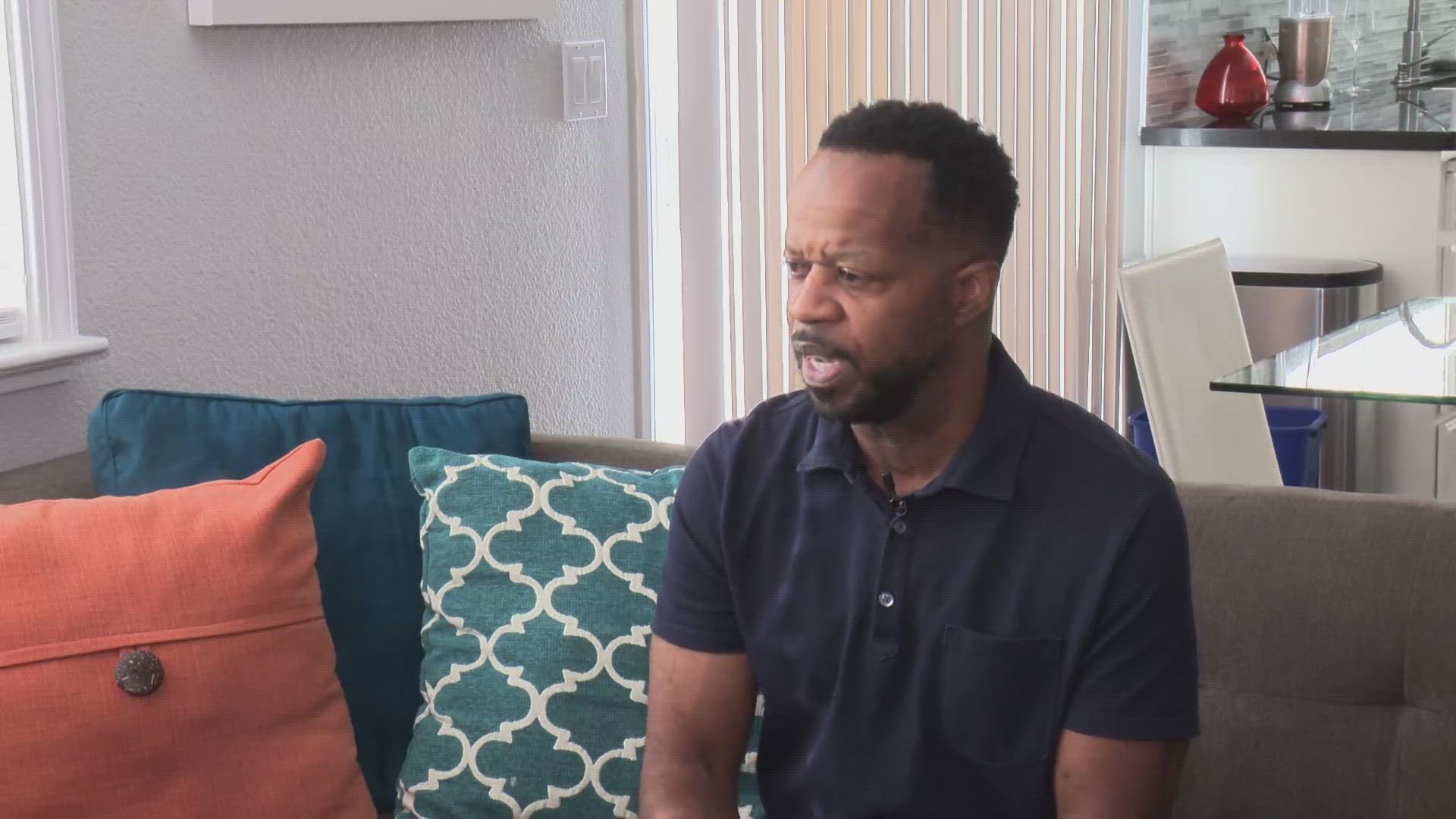SACRAMENTO, Calif. — Sacramento resident Brian Stafford was taking a routine eye exam to renew his driver's license when he noticed a dramatic change in his right's eyes vision.
"They had me cover my right eye, look out of my left to read the chart, which wasn't a problem, but when they had me cover my left eye and look out of my right eye, everything was extremely dark, cloudy, and blurry, and I'd never noticed it before," Stafford said.
That led him to a trip to the eye doctor who diagnosed him with severe glaucoma in only his right eye. That eye had 90% vision loss, while the other was 20/20. After lots of testing, medication and treatments Stafford's vision is stable.
"The damage is done they can't reverse it, it can't be changed. It is what it is, but right now the goal is to maintain the vision that I have left," Stafford said. "I definitely would have lost complete vision in my right eye had it not been caught when it was caught."
Six years have passed since Stafford found out he had glaucoma. It's stable, he has to go to regular eye appointments, but there are some changes to his day-to-day life.
"I love golf, that's the one place I've really noticed it the most because I now wear prescription polarized glasses when I play because it's really hard for me to see the ball far away," Stafford said.
He is encouraging everyone to get an annual eye exam. VSP Vision Care Optometrist Dr. Jen Wademan said your vision is arguably one of the most important aspects of your health.
"If you think about how we communicate in our day-to-day lives, we rely upon clear vision. If you think of an easy preventable way to kind of track any changes in vision it would be annual eye exams," Wademan said. " A yearly comprehensive eye exam is essential in terms of detecting any changes in the back of the eye. We are looking at a variety of things in an exam so if things are changing, we are better to detect those changes earlier on and provide a prompter treatment."
The CDC reports three million Americans have glaucoma but half of them have no idea. Wademan said it's important to know the risk factors for glaucoma. People with a family history of the condition, people who are older in age, and people who are black, Asian and Hispanic have a higher chance of diagnosis.
Wademan said the treatment for glaucoma typically includes eye drops and possibly a minimally invasive surgery. They can't reverse damage but they can keep it from getting any worse. She said you don't want to skip out on your eye exam because 20/20 vision doesn't necessarily mean healthy eyes.
Stafford said he knows men in particular often skip doctor appointments, but he encourages you to listen to his story and choose to go.
"Especially being men of color, we have a higher chance of having glaucoma. It's in our history, it's in our family, I definitely encourage all men, especially men of color to go and seek the annual eye exam. It can really save your vision," Stafford said.
Watch more on ABC10 | Is Body Mass Index accurate? Here's how BMI can impact your health



















